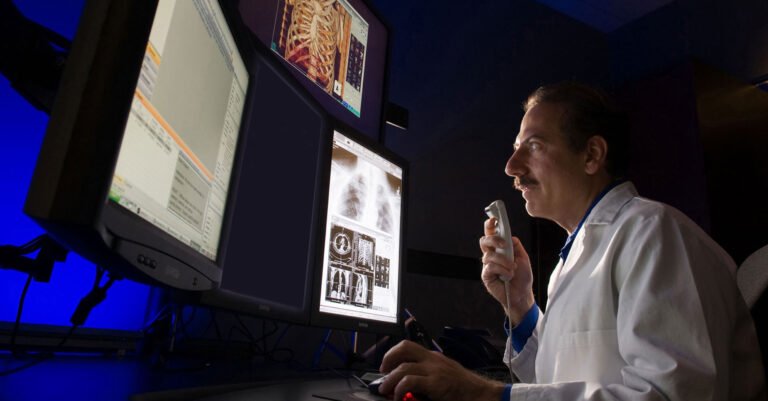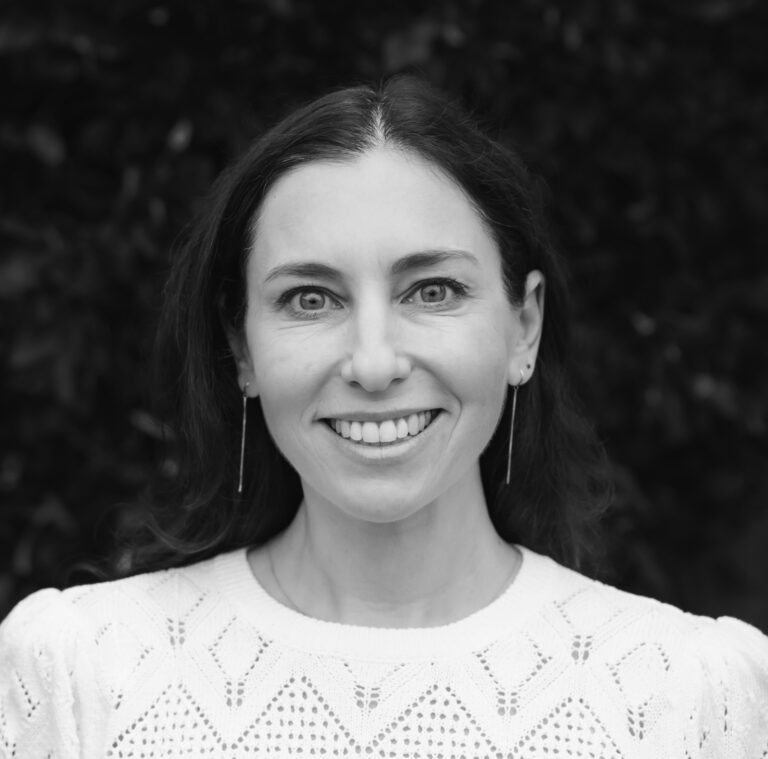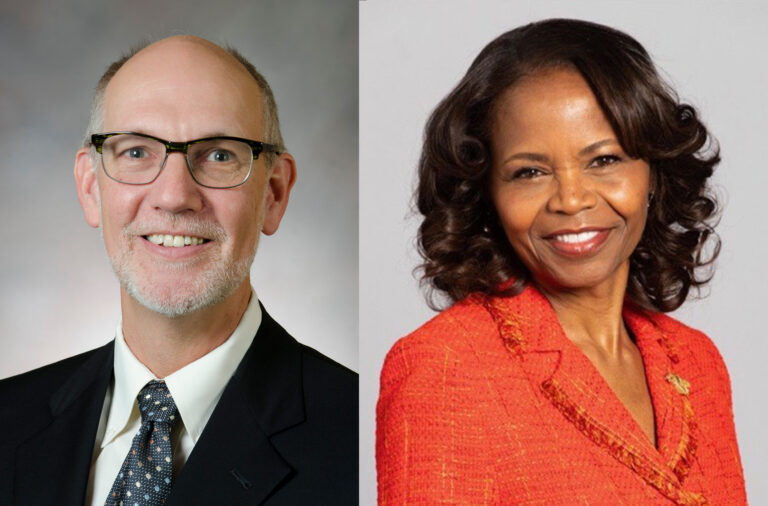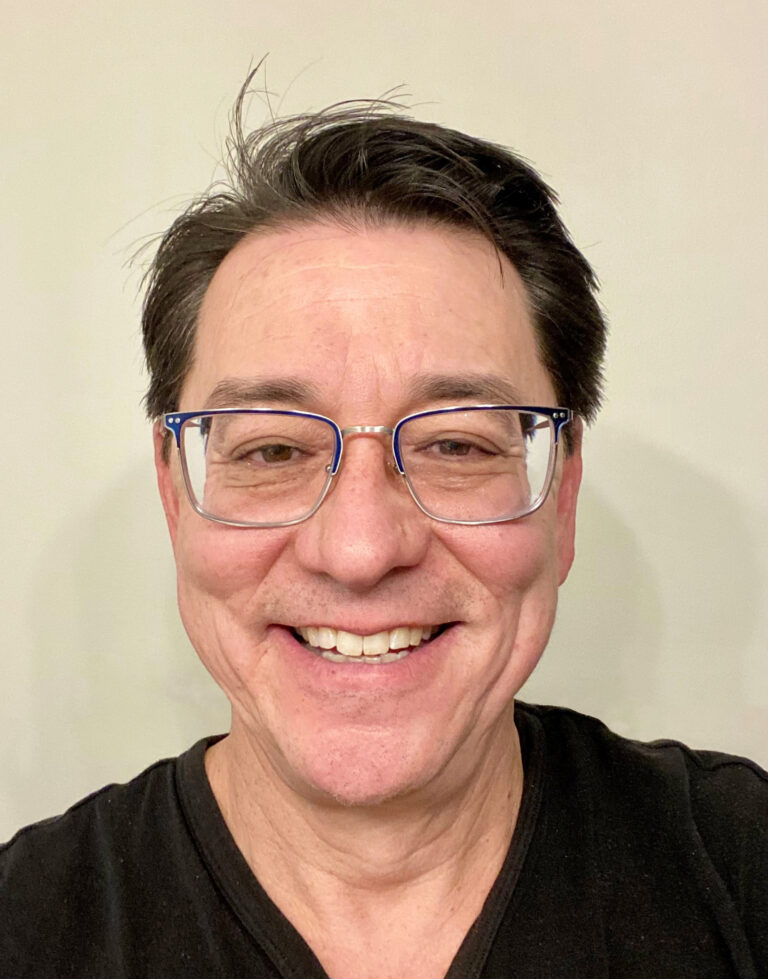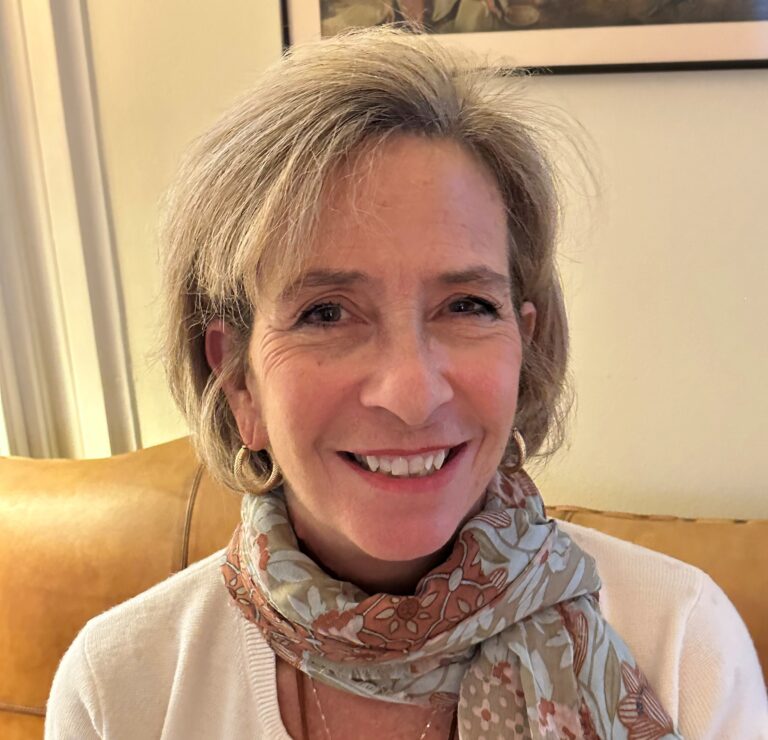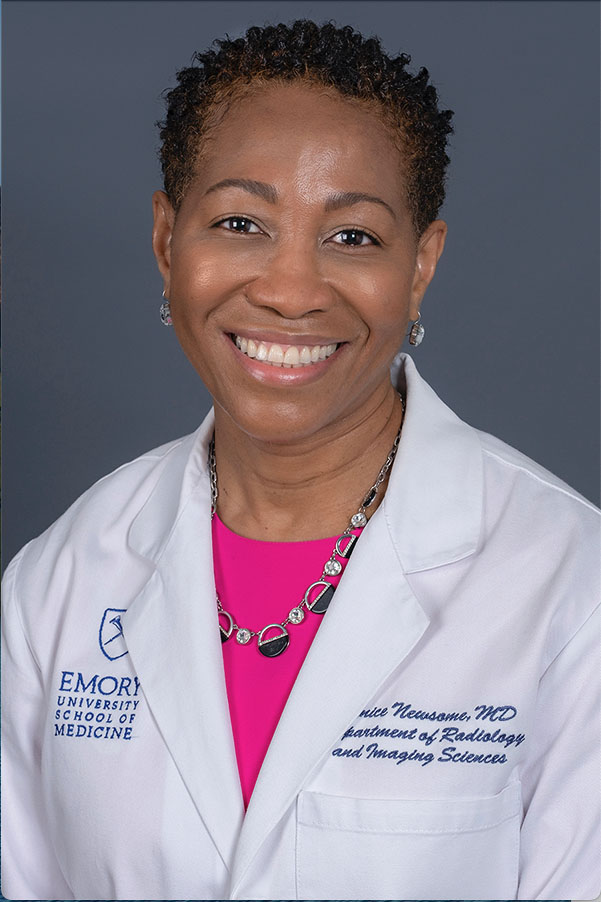AI-Generated Images Inspire Virtual Hangout for Radiologists
Vanderbilt University Medical Center’s Department of Radiology has a director of arts. It’s only natural that an idea developed there to bring radiologists together through an appreciation of art.

Erin Cooke, MD, an associate professor of clinical radiology & radiological sciences and diagnostic radiology residency program director at Vanderbilt, is also the department’s director of arts. It was through the combination of those roles that she met Benjamin Park, MD, a general surgery preliminary year intern at Vanderbilt who will start a residency in nuclear medicine this summer.
When Dr. Park approached Dr. Cooke about doing research, mentioning AI image generation as one of his interests, the conversation turned into one about the intersection of art and radiology.
“It was kind of organic, the way a lot of these things are,” Dr. Cooke said. “Ben had the idea last summer. He and I were talking about how there’s so much interest in AI and radiology and maybe there would be opportunities to combine those elements.”
They formed a group on Discord, a social platform where users form communities to interact with people who share common interests. Drs. Cooke and Park also teamed with Rushay Amarath-Madav, MD, to create a virtual gathering spot named AIRA for radiologists and others affiliated with the field who are intrigued by AI-generated images.

There are more than 50 AIRA users (and growing) who post their work. Participants use AI platforms, such as DALL-E 2 by OpenAI, to create the work by using key words to generate images. The moderators often suggest broad themes the radiologists and other group members build on, and resulting artworks are displayed in the AIRA Discord as well as on Instagram.
“It has a similar interface to Google,” Dr. Park said. “You type a string of text, including a subject, descriptors, and the art form that you would like it to put out, and it comes up with an image. You can continue to revise it based on what comes out.”
Dr. Park finds the process both counterintuitive and complementary to the work that he and his colleagues do as diagnostic radiologists.
“Radiologists look at sets of images and describe them with a set of concise words,” Dr. Park said. “We’re trying to do the opposite, which is using very concise, descriptive language to generate an image.”

Dr. Amarath-Madav, a Wellstar Kennestone Hospital transition year intern who will be starting his radiology residency at Emory this summer, believes the platform has other benefits. He believes that embracing AIRA’s philosophy of community and exercising creativity in the field can help diagnostic radiologists hone their interpersonal skills.
“People always talk about radiologists being in this dark room, not talking to anybody,” he said. “That’s malarkey. The reality is that we have to be primed to communicate across different cultures in the medical system. It’s pivotal for us to be good at that. We have to be able to communicate with patients, too.”
Dr. Amarath-Madav has always been interested in the arts. Being colorblind made him lean toward music until he started the path to becoming a radiologist. He said he sees parallels between his chosen profession and Renaissance artists like Leonardo da Vinci and Michelangelo.
“Once I got to medical school and became interested in radiology, I started finding ways to merge visual arts with the spatial reasoning and the awareness that you need in radiology,” he said. “I thought that it was so cool to be able to do that.”
Using AI makes creativity available for anyone, Dr. Park believes, offering benefits to those who found art inaccessible in the past.
“It’s been proven that the arts and humanities improve wellness and burnout, but not everyone’s an artist,” he said. “Not everyone can produce watercolor paintings. Not everyone can produce music. But AI art is a modality that removes those barriers, allowing you to explore your creativity and produce a high-quality image in a matter of seconds.”
AI’s potential is practically limitless in this medium.
“The beauty of it is that it’s so versatile,” Dr. Park said. “It can put out whatever you’re interested in, whether it’s painting, comics, watercolor, or photography. It can mimic, combine, and produce variations of pretty much any style that’s available online.”
There’s also potential for practical impacts. Dr. Amarath-Madav said the group has plans to develop educational materials.
“We want to start incorporating a case series where we can introduce a clinical vignette or an image and have people answer in creative ways with their AI-generated art, which could hopefully help in the education realm as well through residency,” he said.
Dr. Cooke, a painter whose portfolio is available online, is new to AI. She’s accustomed to using more traditional mediums, including acrylics, watercolors, oil, and oil pastels.
Starting the group has helped her find a unique way of expressing herself by using AI.
“It’s still a journey of experimentation, but that’s part of the creative fun,” Dr. Cooke said. “It makes you think about other ways of looking. For me, with the artistic background, if I don’t specify what type of style, it’s interesting to see what comes up.”

